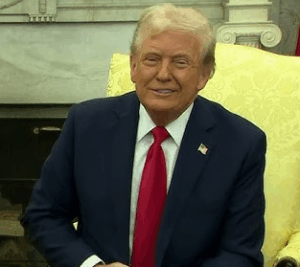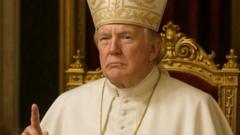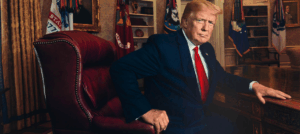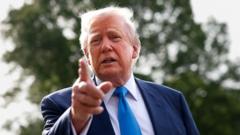President Trump has initiated a significant policy push aimed at rejuvenating the American film industry by imposing a 100% tariff on foreign films. This action is framed as both an economic necessity to protect domestic production and a national security measure against foreign influence in media content.
Tariff on Foreign Films: Trump's Bold Move to Revitalize American Cinema
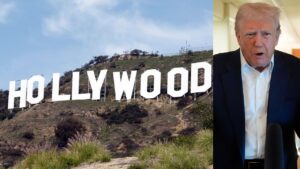
Tariff on Foreign Films: Trump's Bold Move to Revitalize American Cinema
In an effort to bolster the U.S. film industry, President Trump has announced a sweeping 100% tariff on movies made outside the nation, declaring it vital for economic and cultural preservation.
In a recent announcement, President Donald Trump revealed a bold plan to impose a 100% tariff on films produced outside the United States. This initiative is presented as a critical strategy to revitalize the American film industry, which, according to the President, is currently facing a severe decline due to international competition and foreign incentives that lure American talent abroad.
In making this decision, President Trump highlighted the urgency of addressing what he terms a national security threat. He argues that foreign films could potentially carry propaganda that undermines U.S. cultural narratives, stating that efforts by other nations to attract American filmmakers not only jeopardize domestic jobs but also threaten national messaging.
The directive, which marks a significant shift in trade policy relating to the entertainment sector, calls on the Department of Commerce and the U.S. Trade Representative to begin the tariff implementation process. While details about how this policy will be executed are pending, the announcement has already sparked dialogue within the film industry. Commerce Secretary Howard Lutnick has expressed the administration's commitment to this initiative, indicating readiness to act.
While some industry leaders and international stakeholders are worried about the ramifications of such tariffs, proponents assert that this approach is essential for re-establishing a competitive environment in filmmaking that benefits American workers and preserves cultural integrity.
This tariff aligns with President Trump’s wider economic agenda of prioritizing American industries and decreasing reliance on foreign production. The administration aims to reaffirm Hollywood's global standing and promote the United States as a leader in cinema.
As the situation evolves, the impact of the tariff on the domestic film industry will be closely scrutinized, with advocates and detractors debating its long-term effectiveness in revitalizing U.S. cinema. Regardless, the administration's stance on protecting American cultural and economic interests is unequivocal.





